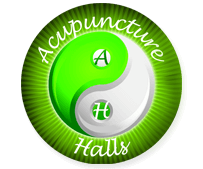
Chronic pain affects millions of people worldwide, often leading to diminished quality of life and limited physical functioning. While many seek relief through medication and physical therapy, an alternative approach, known as muscle testing, is gaining popularity for its potential to alleviate pain and support overall physical health. Muscle testing, also called applied kinesiology, involves assessing the body’s muscle responses to detect imbalances and weaknesses that may contribute to chronic pain.
What is Muscle Testing?
Muscle testing is a technique used by practitioners to evaluate the body’s energy flow and identify imbalances in muscle strength and function. Through gentle manual testing, practitioners apply pressure to a specific muscle or muscle group while the patient resists. Based on the muscle’s response, they assess the body’s reaction to physical, chemical, or emotional stimuli, which can reveal issues such as stress, injury, or nutritional deficiencies.
This approach originated in the 1960s, developed by chiropractor Dr. George Goodheart, who found that muscle weaknesses could provide clues about underlying health issues. Over time, muscle testing has evolved and is now used as part of alternative therapies aimed at pain management, functional improvement, and overall wellness.
How Muscle Testing Works
During a muscle testing session, a practitioner will typically evaluate different muscles to determine how the body responds to specific stimuli or questions. Here’s a general overview of the process:
- Evaluation of Muscle Groups: The practitioner tests individual muscle groups to see how well they function under resistance. This can identify areas of weakness or imbalance that may be contributing to pain.
- Response to Stimuli: The practitioner may ask the patient to think about specific situations, foods, or substances. The muscle’s reaction, either a strong or weak response, can reveal sensitivities, stressors, or deficiencies.
- Guiding Treatment Decisions: Based on muscle responses, practitioners can tailor treatment plans, which may include dietary changes, exercises, or specific therapies to address the identified imbalances.
Benefits of Muscle Testing for Chronic Pain
Muscle testing can help in managing chronic pain by identifying the underlying issues that traditional methods might miss. Here are several ways muscle testing may support pain management:
1. Identifying Muscular Imbalances
Chronic pain often stems from imbalances in muscle groups or alignment issues. Muscle testing can help pinpoint these imbalances, allowing practitioners to target the areas that require strengthening or realignment. This targeted approach can relieve pain by improving posture, reducing tension, and restoring natural movement patterns.
2. Discovering Sensitivities and Nutritional Deficiencies
Some chronic pain conditions, such as inflammation, can be triggered by food sensitivities or nutrient deficiencies. Muscle testing can help identify these factors, guiding patients toward dietary adjustments that may alleviate pain and promote healing.
3. Addressing Emotional Stress
Emotional stress is known to exacerbate chronic pain. Muscle testing can reveal how specific thoughts or emotions impact physical health by assessing muscle response to particular questions or scenarios. Recognizing the connection between mind and body can empower patients to adopt stress-management techniques, reducing the impact of emotional stress on physical pain.
4. Supporting a Holistic Pain Management Plan
Muscle testing is often part of a broader holistic approach to pain management. By identifying and addressing multiple factors that contribute to pain, including muscular, nutritional, and emotional elements, it provides a more comprehensive strategy that supports long-term physical health and wellness.
What to Expect During a Muscle Testing Session
A muscle testing session is usually gentle and non-invasive, and most individuals find it comfortable. Here’s what you can generally expect:
- Initial Assessment: The practitioner will discuss your health history, pain areas, and any specific concerns.
- Muscle Testing: The practitioner will test different muscle groups by applying light pressure and asking you to resist. They may test your responses to certain foods, supplements, or even emotional topics.
- Treatment Recommendations: Based on the findings, the practitioner may suggest specific exercises, lifestyle changes, dietary adjustments, or other therapies to support pain relief and health improvement.
Is Muscle Testing Safe?
When conducted by a trained professional, muscle testing is generally safe and suitable for most people. The technique involves gentle pressure and minimal physical intervention, making it low-risk. However, as with any alternative therapy, it’s important to seek guidance from a certified practitioner who has experience with muscle testing and understands its applications and limitations.
Conclusion
Muscle testing is a valuable tool for managing chronic pain and improving overall physical health. By addressing muscular imbalances, nutritional needs, and emotional stressors, muscle testing provides a comprehensive approach that can complement traditional pain management techniques. Whether used as a standalone therapy or as part of a holistic treatment plan, muscle testing offers a pathway to greater awareness of one’s body and potential relief from chronic pain.
If you’re struggling with chronic pain and looking for an alternative approach, consider consulting a certified muscle testing practitioner. This technique might offer the insights you need to understand and address the underlying causes of pain, leading to lasting health improvements and a better quality of life.
If you’re interested in muscle testing to manage chronic pain and improve physical health, visit the Acupuncture Halls clinic in San Juan Capistrano, which is close to Dana Point and San Clemente. Our licensed muscle testing practitioner is available to help with any health issues. You can use this form or give 949-510-6333 a call to make an appointment.
